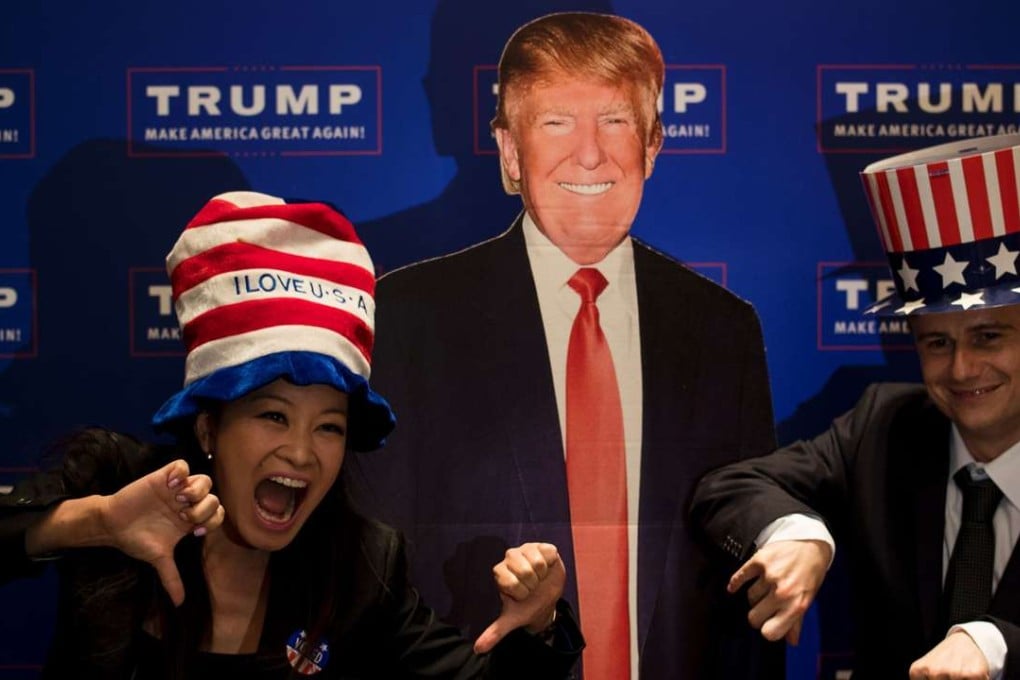Why China’s ‘Trump fever’ has cooled so quickly
Audrey Jiajia Li says the incoming US president’s comments on ‘one China’ and Taiwan touched a raw nerve and have left even diehard fans wondering whether seasoned diplomat Hillary Clinton would have been the more rational choice


As a pragmatic businessman, Trump appeared to care little about traditional American “clichés” such as democracy and human rights. In fact, his admiration for Russian President Vladimir Putin might have revealed his inclination towards authoritarianism. Hillary Clinton, in contrast, with her tough line on human rights issues and her role in President Barack Obama’s “pivot to Asia” policy – ostensibly to contain China – was seen as more hostile.
Dissident artist Ai Weiwei ‘surprised, confused’ by Chinese people’s support for Donald Trump
But what was puzzling to the rest of the world was that a great number of ordinary Chinese, who had never participated in an election, were also crazy about the US real estate tycoon. On Chinese social media platforms, the majority of the posts were pro-Trump. But the pro-democracy camp in China remained divided. Most of those leaning towards Western liberal ideology were turned off by Trump’s disrespect of women and minorities, his insulting rhetoric and divisive campaign tactics. Others, who identify more with the conservatives, liked him as a straightforward strongman who would end “excessive political correctness” and be open to confronting dictators.

Trump’s fans in China are sticking with him despite lewd remarks
But, these two groups of Trump supporters do have a few things in common. First, they share a disdain for political correctness. This attitude is a direct result of China’s modern history. In the Mao Zedong (毛澤東) era, intellectuals went through a series of political crackdowns and civility fell victim to the need for survival. Then, post-Mao reforms ushered in decades of social and economic competition, which saw many lose faith in idealism and embrace “the law of the jungle”.
